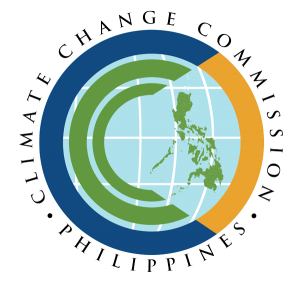
QUEZON CITY, June 9 – The Climate Change Commission (CCC) on Wednesday reminded local government units (LGUs) that their failure to come up with measures to reduce disaster risks is tantamount to social injustice, because it deprives the poorest and most vulnerable sectors the much-needed protection against the adverse effects of climate change.
“Non-action on climate and disaster risks is a social sin, an injustice to the poor and most vulnerable,” CCC vice chair, Secretary Emmanuel de Guzman, told local executives who attended the two-day Communities for Resilience or CORE Convergence Forum in Cagayan de Oro City.
The forum brought together LGUs around the Bauayan-Malungon, Cagayan de Oro, Davao and Tagoloan River Basins, with the aim of increasing the capacities of local communities in reducing disaster risk and adapting to climate change.
Secretary de Guzman pointed out the sad reality that sectors mired in poverty, such as farmers, fisherfolk, and informal settler families living in danger areas, have a higher chance of experiencing the ill effects of climate change due to increased exposure and vulnerability.
He said poor people often live, farm or hold assets in areas more exposed to droughts and floods, which put their homes, crops, livestock and even their own lives at greater risk.
They also have limited safety nets or insurance mechanisms to help them cope with climate change-related shocks, such as failed harvests linked to changing weather patterns and loss or damage linked to weather extremes, he added.
In its 2015 report, the United Nations Office for Disaster Risk Reduction put the Philippines sixth among 10 countries worldwide hardest hit by natural disasters, sustaining US$1.9 billion in economic damage and affecting an estimated 3.83 million people.
“Poverty breeds disaster vulnerability, and those who have least in life risk life most,” de Guzman explained. “Thus, as disasters become more prevalent, the higher is the right of the poor to social protection, and the higher is the duty of government to reduce their disaster vulnerability and liberate them from the vicious cycle of poverty and risk.”
He noted that it is for this reason that the CCC is pushing for climate risk-sensitive national and local development policies, plans and programs so that “the underlying risk factors are addressed and disaster risks are reduced effectively”.
“The CCC is facilitating a whole of government approach—the convergence and integration of the efforts of all sectors and stakeholders—to build the resilience of our local communities,” he said.
De Guzman underscored the urgent and compelling need to enhance the capacity of LGUs to adapt to climate change and reduce their risk to weather-related disasters to protect the nation’s poorest who bear the brunt of climate change impacts.
“The impact of nature’s forces on vulnerable communities must be reduced to prevent disasters and worsen poverty,” he said, adding that adaptation actions from the national level down to the local level offer cost-effective approaches to minimize the negative impacts of natural hazards and extreme weather events.
Actions—including preparing risk assessment, protecting ecosystems, improving agricultural methods, managing water resources, building settlements in safe zones, instituting better building designs, improving insurance coverage, developing social safety nets, and strengthening multi-hazard early warning systems and services—must be embodied in local climate change action plans required of LGUs by the Climate Change Act.
De Guzman said that the most effective way for a country to reduce climate-related risks in the medium-term is through factoring risk reduction into development planning, land use, and building and environmental management.
“The challenge of climate change adaptation is fundamentally a challenge of strengthening the capacities for risk governance so that cost-effective strategies for risk reduction and management can be factored into development planning and public investment decisions,” he emphasized.
“Unless development investments become climate risk-sensitive, it may increase disaster risks and maladaptation,” he added. (PND)







